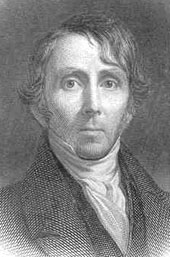When did Unitarians begin?
September 1, 2016There are different ways that you could define the beginning of Unitarianism. But many people would say that Unitarians were first defined as a distinct religious movement by William Ellery Channing, in a sermon given in 1819.
In this sermon, called “Unitarian Christianity” (or sometimes “The Baltimore Sermon,” because he gave it at an ordination in Baltimore), Channing laid out what he though were the particular beliefs of the group of liberal Christians who were sometimes referred to as “Unitarians.”
Unitarians, he said, did not believe in the trinity of God the Father, God the Son (Christ) and the Holy Ghost—which is what gave the group the name Unitarian, for the unity of God. But more than that, he described Unitarians as believing in human goodness, and believing in the importance of using reason in looking at religion.
Channing said that thinking is one of the most important gifts that we are given as human beings, and that surely God expected us to to use our gifts of reason in understanding religion as well as the rest of life.
In 1825, just six years later, the American Unitarian Association became the official organization of the Unitarians.
Tags: channing, Christian Unitarian, history, Unitarian, UU HistorySupport the CLF
Can you give $5 or more to sustain the ministries of the Church of the Larger Fellowship?
If preferred, you can text amount to give to 84-321
Newsletter Signup
About
Quest for Meaning is a program of the Church of the Larger Fellowship (CLF).
As a Unitarian Universalist congregation with no geographical boundary, the CLF creates global spiritual community, rooted in profound love, which cultivates wonder, imagination, and the courage to act.
Contact
Church of the Larger Fellowship Unitarian Universalist (CLFUU)
24 Farnsworth Street
Boston MA 02210



